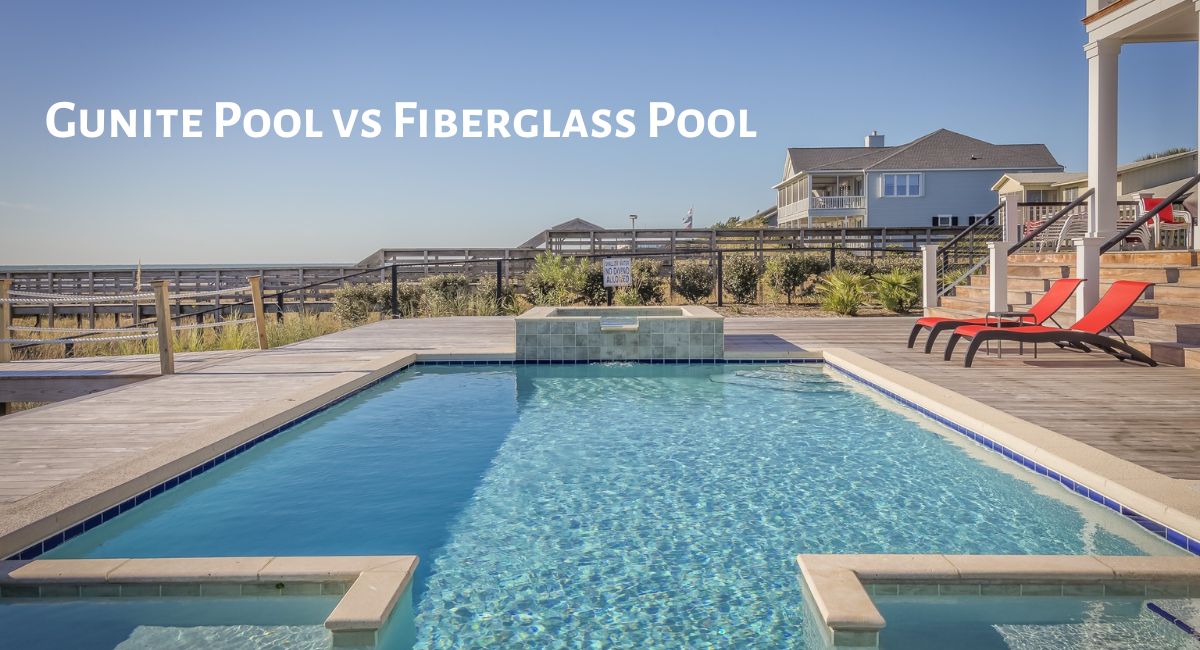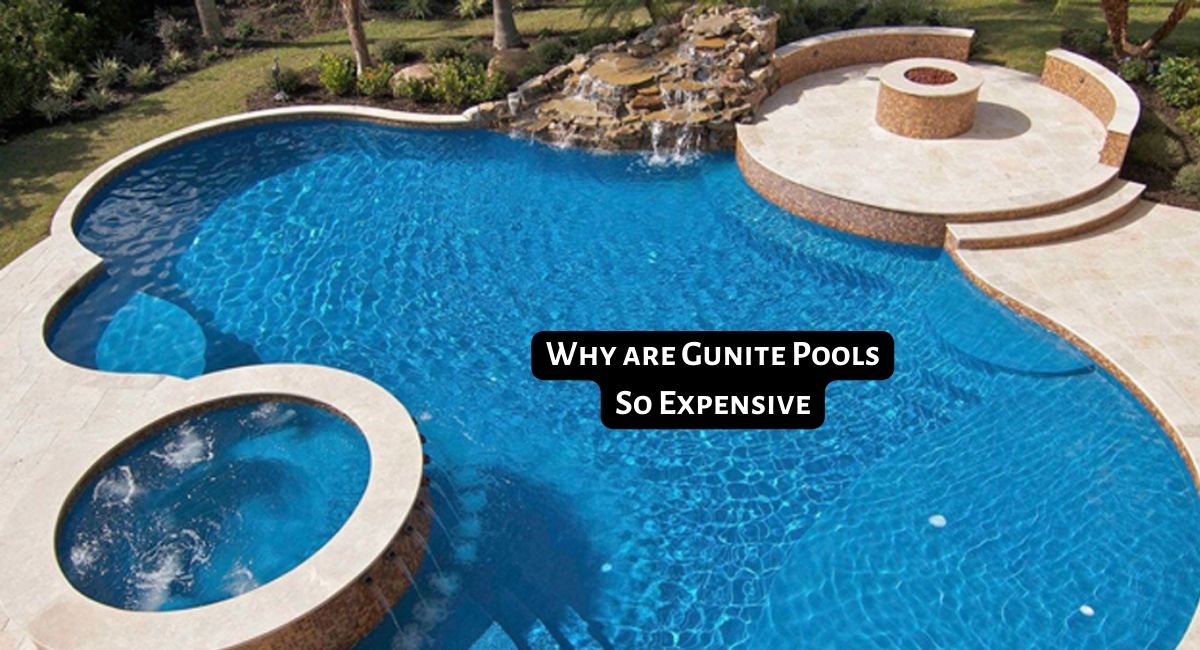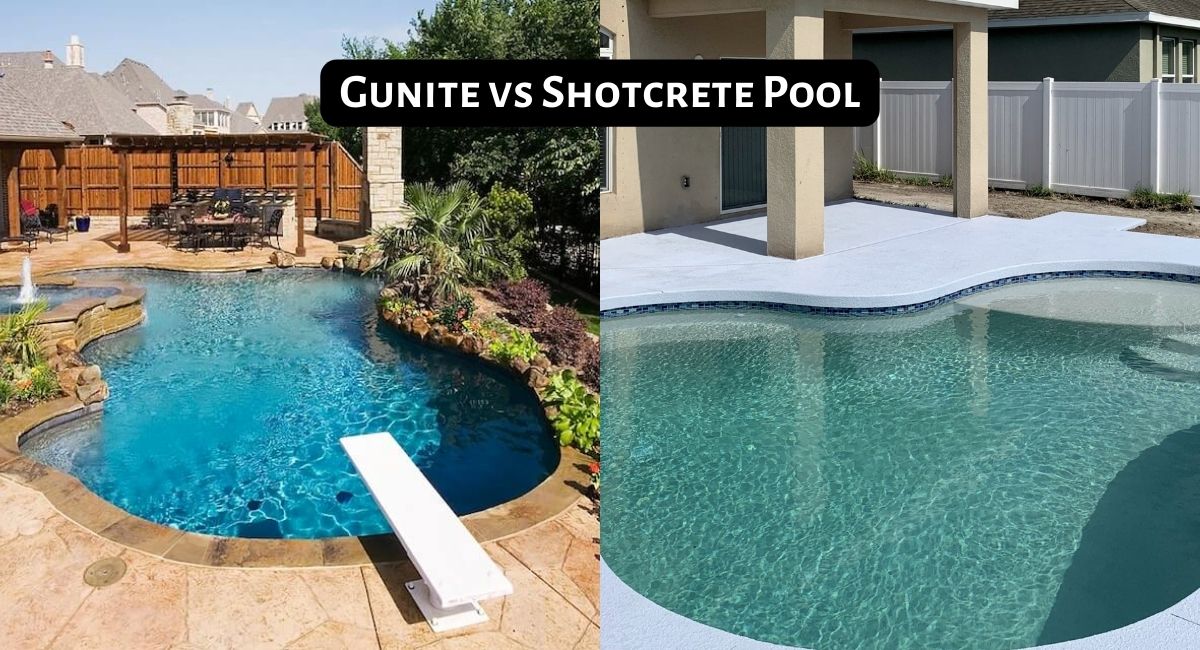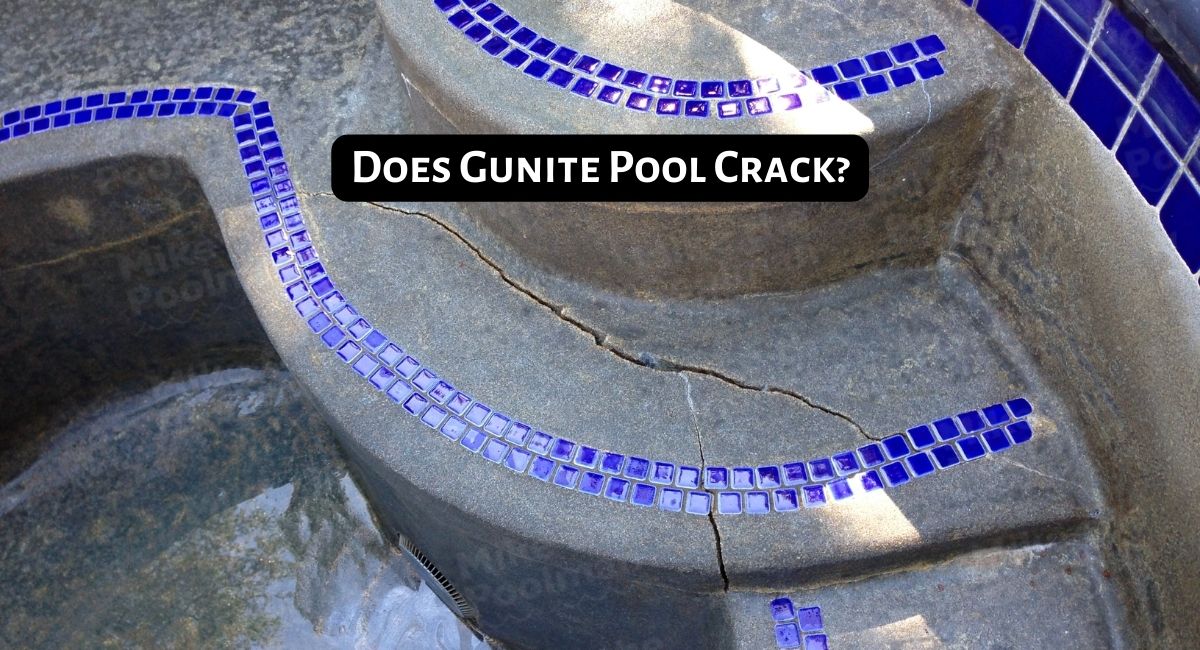When it comes to choosing a type of pool, Gunite pool vs fiberglass pool are two of the top choices for homeowners. Each has its own advantages and disadvantages that you should consider before deciding which is best for your home. Gunite pools are cement-based and provide an extremely durable surface that is resistant to cracks, chips, and other damage. Gunite pools are also customizable, allowing you to choose from a variety of shapes and sizes. On the other hand, fiberglass pools come pre-molded, making them easier and faster to install than Gunite pools. They also require less maintenance over time as they don’t need resurfacing as often as Gunite pools do.
However, Gunite pools are more versatile when it comes to customization and design options than fiberglass pools.
Gunite Pool vs Fiberglass Pool
When it comes to deciding between Gunite and Fiberglass pools, there are a few important factors to consider. Gunite pools are made of concrete reinforced with steel mesh and can be formed in virtually any shape or size. This makes them an ideal choice for those looking for a customized pool that fits their landscape. Gunite is also highly durable, making it a great long-term investment.
Fiberglass pools, on the other hand, are made of pre-formed fiberglass shells that are installed in the ground. While this installation process can be completed quickly and efficiently, it is more limited in terms of customization options and size selection. Fiberglass pools require less maintenance over time, however Gunite pools can be resurfaced and repaired if necessary.
Finally, the cost of Gunite and Fiberglass pools varies significantly depending on the size of the pool and customization options chosen. Gunite typically costs more due to the complexity of its construction, while fiberglass is often cheaper but limited in terms of overall design potential.
What are the Differences Between Gunite Pools vs Fiberglass Pools?
Gunite and fiberglass pools are both excellent options for an in-ground swimming pool, and the best choice depends on your budget, needs and preferences.
Gunite pools offer more design flexibility and color options while fiberglass pools require less maintenance and are generally more affordable. Consider all of these factors when deciding which type of pool is right for you!
- Gunite pools are made of a reinforced concrete material that is sprayed onto mesh and rebar frames, while fiberglass pools are constructed from large fiberglass molds.
- Gunite pools have greater design flexibility than fiberglass pools, so you can add custom features like built-in benches, stairs and more. Gunite also offers a greater range of color options.
- Gunite pools take longer to install than fiberglass pools, with installation times ranging from 3-6 weeks compared to one to two weeks for fiberglass pools.
- Gunite pools require a certain level of maintenance and need to be resurfaced every 10 years or so, while fiberglass pools are relatively maintenance-free and typically don’t require resurfacing.
- Gunite pools are more expensive to install than fiberglass pools, with average installation costs ranging from $20,000-$50,000 for Gunite compared to $10,000-$40,000 for fiberglass.
- Gunite pools can be heated using a variety of methods including solar and gas, while fiberglass pools must rely on gas heaters for heating.
- Gunite pools are more durable than fiberglass pools, but can be susceptible to cracks due to the nature of their construction. Fiberglass pools have superior durability and are not likely to crack or need repairs.
Advantages and Disadvantages of Gunite Pools
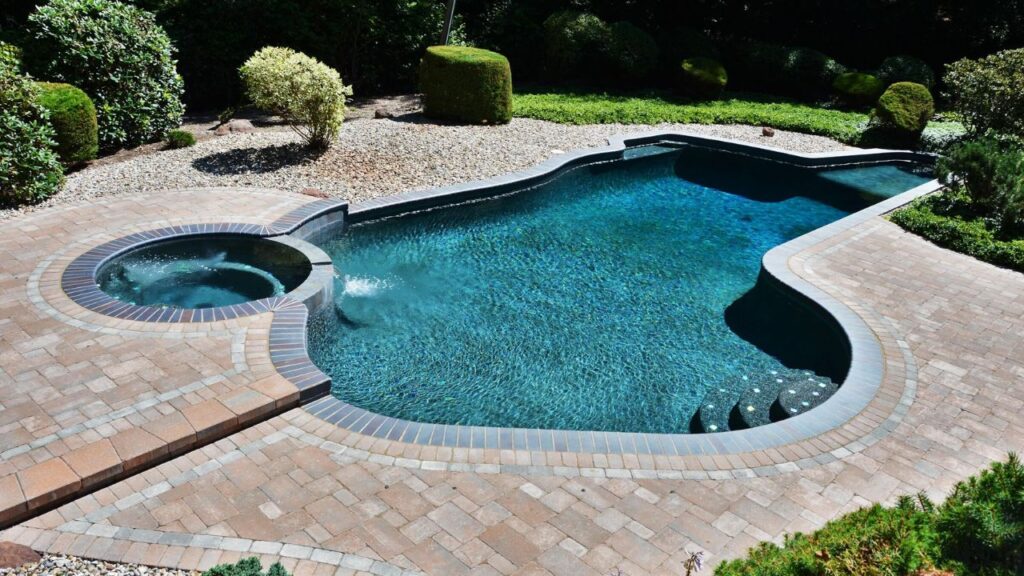
| Advantages of Gunite Pools | Disadvantages of Gunite Pools |
| Gunite pools are extremely durable and can last for decades without showing wear and tear. | Gunite pools are much more expensive than other types of pools, as the Gunite mixture and installation process can be costly. |
| Gunite pools offer a lot of customization options. Gunite pools can be designed in any size and shape, allowing you to create a truly personalized pool that fits your exact style and needs. | Gunite pools require professional installation, so it’s important to find an experienced contractor to handle the project. |
| Gunite pools are highly sanitary, as the Gunite mixture forms a waterproof seal that prevents water from seeping out. | Gunite pools also require regular maintenance and cleaning in order to stay in good condition, as Gunite is prone to staining and discoloration. |
Advantages and Disadvantages of Fiberglass Pools
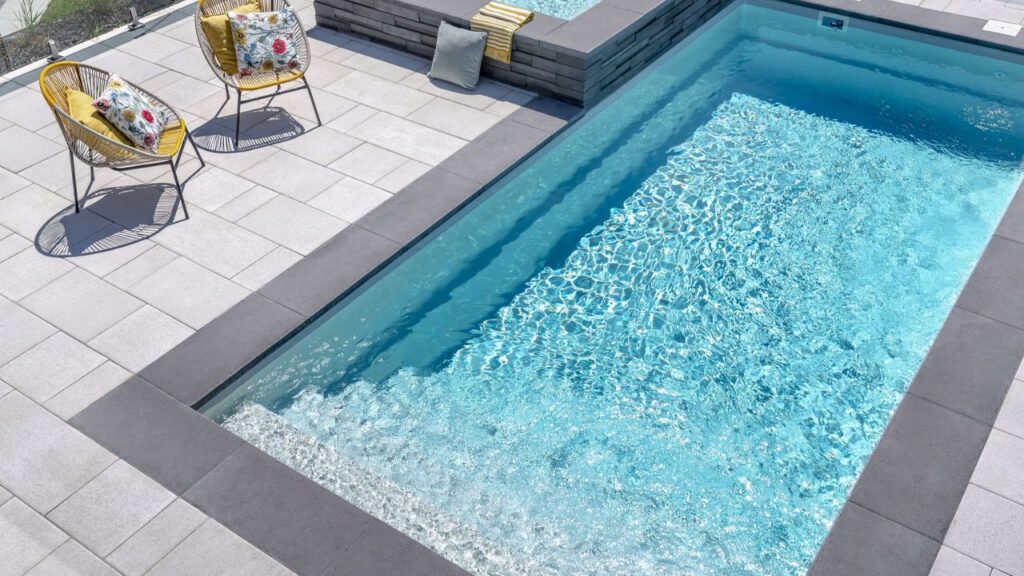
| Advantages of Fiberglass Pools | Disadvantages of Fiberglass Pools |
| Fiberglass pools are relatively inexpensive when compared to Gunite pools, and the installation process is much simpler and faster. | Fiberglass pools may not be as durable as Gunite pools, as they can crack or chip over time. |
| Fiberglass pools require less maintenance than Gunite pools, as they are non-porous and resistant to staining and discoloration. | Fiberglass pools are limited in terms of customization, as the designs and shapes are somewhat predetermined. |
| Fiberglass pools come in a wide range of sizes and shapes, making it easy to find one that fits your needs. | Fiberglass pools may also require more chemicals to maintain a balanced pH level and clean the water. |
Which Pool to Choose – Gunite or Fiberglass?
If you’re deciding between Gunite and Fiberglass pools for your backyard oasis, you’ll want to consider the differences between the two options before making a final decision. Gunite and fiberglass pools each have their own set of advantages and disadvantages that need to be weighed in order to determine which is right for your particular needs and requirements.
Ultimately, Gunite and Fiberglass pools each have their own advantages and disadvantages, so it’s important to weigh your options carefully before deciding on a pool type. Gunite pools may have higher upfront costs but may be more durable in the long run, while Fiberglass pools are cheaper and require less maintenance. Whichever type you choose, having a pool can truly enhance your outdoor living space!
Comparing Gunite Pools or Fiberglass Pools?
Gunite and Fiberglass pools are both popular choices if you’re looking to install a pool in your backyard. Both Gunite and Fiberglass offer different benefits and drawbacks when it comes to cost, installation, maintenance, and longevity.
- Ease of Installation: Gunite is poured and formed on site, making it more labor intensive than a fiberglass pool. Gunite also has more construction time due to their need for curing prior to finishing the pool. Compared to Gunite pools, Fiberglass Pools arrive at your home in one piece and take less time to install due to the ability to simply place them in an excavated hole and fill with water.
- Style: unite is a concrete-based material that is sprayed into place and then covered with a protective finish. It takes more time to install than fiberglass, but it can be tailored to fit any backyard space or desired design. Fiberglass pools come as one pre-constructed unit that is simply placed in the ground before being filled with water. Gunite pools offer more flexibility in design options, are more durable, and can last longer than fiberglass pools.
- Cost: Gunite pools are more costly to install due to the labor involved and the cost of materials. Fiberglass pools are typically much less expensive in comparison.
- Maintenances and Upkeep: Gunite pool require more maintenance than fiberglass given their need for regular scrubbing and power washing. Gunite pools also require specialized equipment to keep them clean, such as robotic vacuums or suction cleaners. Fiberglass pools need less maintenance as they have a non-porous surface that is easier to clean.
- Lifespan and Durability: Gunite pool have a long life-span and are considered to be the most durable of any material. Gunite is also resistant to abrasion, so it stands up well over time. On the other hand, Fiberglass pools offer good durability but they can suffer from high levels of abrasion, so they may need to be replaced sooner than Gunite pools.
Conclusion
When it comes to Gunite Pool vs Fiberglass Pool, there is no one-size-fits-all answer. Each pool has its own benefits and drawbacks, with cost being a major factor in the decision making process. Gunite pools are highly customizable, allowing for design flexibility and durability; however, they may require more maintenance. Fiberglass pools are a great option if you’re looking for an easy, low-maintenance installation with a quick turnaround time.
Ultimately, it is important to consider your budget and lifestyle when selecting the pool that best fits your needs. With careful consideration, you can enjoy the perfect swimming experience for years to come!
Frequently Asked Questions (FAQs)
Is gunite better than fiberglass?
Gunite pools are made from a concrete mixture of sand, cement, and water that is sprayed or troweled onto a steel-reinforced frame. Gunite pools offer durability and longevity, as well as being highly customizable to fit any space. Gunite pools are also more resistant to cracking and staining than fiberglass, which is a key advantage if you live in an area with extreme temperatures or heavy rainfall.
What’s the difference between a fiberglass pool and a gunite pool?
Gunite pools are made from a mixture of sand, cement, and water that is sprayed onto a steel frame for the pool’s walls and floor. Gunite pools can be built in any shape or size, offering complete customizability for homeowners who want to make the most out of their outdoor space. Fiberglass pools, on the other hand, are prefabricated and come in a variety of shapes and sizes. Their walls, floor, and steps are one continuous piece with no seams or gaps which makes them very easy to install compared to Gunite pools, which require more labor intensive construction.
Why are gunite pools better?
Gunite pools are more durable than fiberglass pools, with a longer life expectancy and better resistance to cracking. Gunite also offers greater design flexibility than most other pool types – it’s possible to create custom shapes, depths, and finishes that give you the exact look and feel desired. Gunite is also customizable in terms of its surface finish, offering options such as smooth and pebble finish. Gunite pools are great for areas with heavy winds due to their durability and flexible design potential – additional features can be added to provide more wind resistance.
What is the most durable pool?
The most durable pool is one made of concrete. Concrete pools are built to last, often lasting up to 30 years or more. This type of pool requires minimal maintenance and repairs over its lifetime, as the material is strong and resistant to wear-and-tear, such as chips or cracks.
